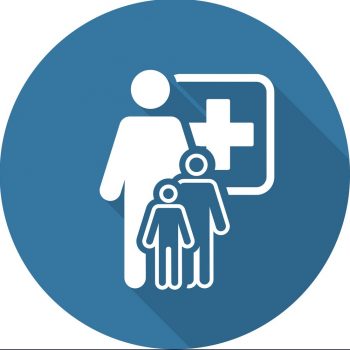Project Details
About the Project
A family has a toddler with complex health needs involving visual and hearing impairment, profound developmental delays, and a single kidney, requiring a tracheostomy, a g-tube, and support for all aspects of daily life. To access their multiple specialties and providers, they travel from their home community in the Comox Valley regularly to attend appointments in Victoria, Nanaimo, and Vancouver. In 2022, they traveled for appointments on 15 separate occasions, requiring the parents to take time off work and pay for travel and accommodation. On top of these appointments, their daughter spent a combined 47 nights in the PICU at VGH and BC Children’s Hospital. In their words, “the extra stress this puts on our family is extraordinary”.
The population of patients like this toddler is on the rise, due in part to advances in pediatric intensive care for occurrences such as extreme prematurity, genetic anomalies, and other previously unsurvivable severe medical conditions. Across Canada and internationally, this upsurge has been a topic of conversation, research, and publication. Considering that 1% of this pediatric patient population uses 30% of pediatric health care dollars, and have grown by more than 400% over 15 years, the question is: how can care for this population be improved? They are a population of children that are hard to name with a single disease, and risk being unseen, without a system of care around them.
Dr. Jennifer Balfour has been noting this increase in the South Island, and the challenges in providing care for a diverse population, and wanted to bring together key interest holders to brainstorm what a coordinated care team for children and youth with medical complexity could look like. Over the past few years, Dr. Balfour and her colleagues have accessed support from Health System Redesign, the Specialist Services Committee’s Enhancing Access funding, and a South Island Facilities Engagement grant to imagine a multidisciplinary service. Engaging with pediatrics, the PICU team, surgeons, pharmacists, dieticians, social workers, occupational therapists, physiotherapists, and Island Health leadership, and Nursing support services, the team aimed to identify aspects of a service that would meet the needs of these patients, with improved methods of navigation of the system, decreased burden on families, and improved quality of care.
One key observation was how children with other kinds of significant health needs have designated spaces and services to receive care – for example, patients with pediatric cancers or cystic fibrosis patients. For children with medical complexity, whose diagnoses are highly varied and with multiple underlying conditions, there is no established and coordinated support to navigate care, especially given the needs of these children cross lines of chronic concerns, as well as experiencing frequent deteriorations triggered by minor illnesses, and the need to access urgent care. This means that their encounters with the health care system are often episodic, disconnected, and crisis-driven, rather than coordinated, proactive, and focused on planned prevention whenever possible.
Moreover, the current system requires clinicians to engage in constant ‘side of the desk’ or ad hoc ‘work around’ solutions to problem solve for families, stay abreast of care plan changes, and communicate with other specialized team members in an effort to prevent admissions or Emergency room visits. Based on these conversations, the team determined that what was needed was a complex care service. This would include a very well understood entry point to the system for planned prevention, to deal with an immediate problem, for communication with a variety of clinical supports, and for advocacy work. With the help of Erin Corry, who provided invaluable project management support, the team drafted a proposal for the “Collaborative Care Program for Children and Youth with Health Complexity” and presented it to Island Health leadership: Gillian Kozinka, Interim Executive Director of VGH, Trapper Edison, Interim Clinical Operations Director, VGH, and Marko Peljhan, Vice President.
As a result of this presentation, there was a health authority commitment to support the development and funding of this service. The team has secured a second phase of South Island MSA funding to support the collaboration, flow charts, priorities, idea sharing, action trackers, and asynchronous communication to move forward with this project.
We wish them every success in this next phase of the project, and celebrate all the hard work that has gone into bringing this service to our Vancouver Island patients and families.

